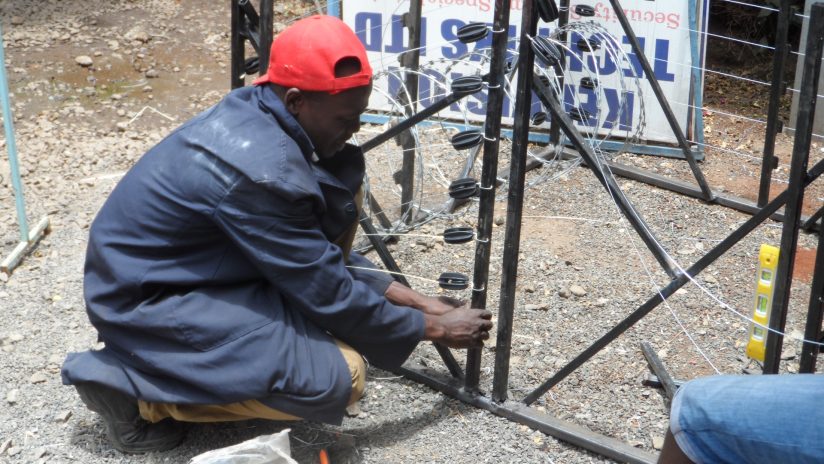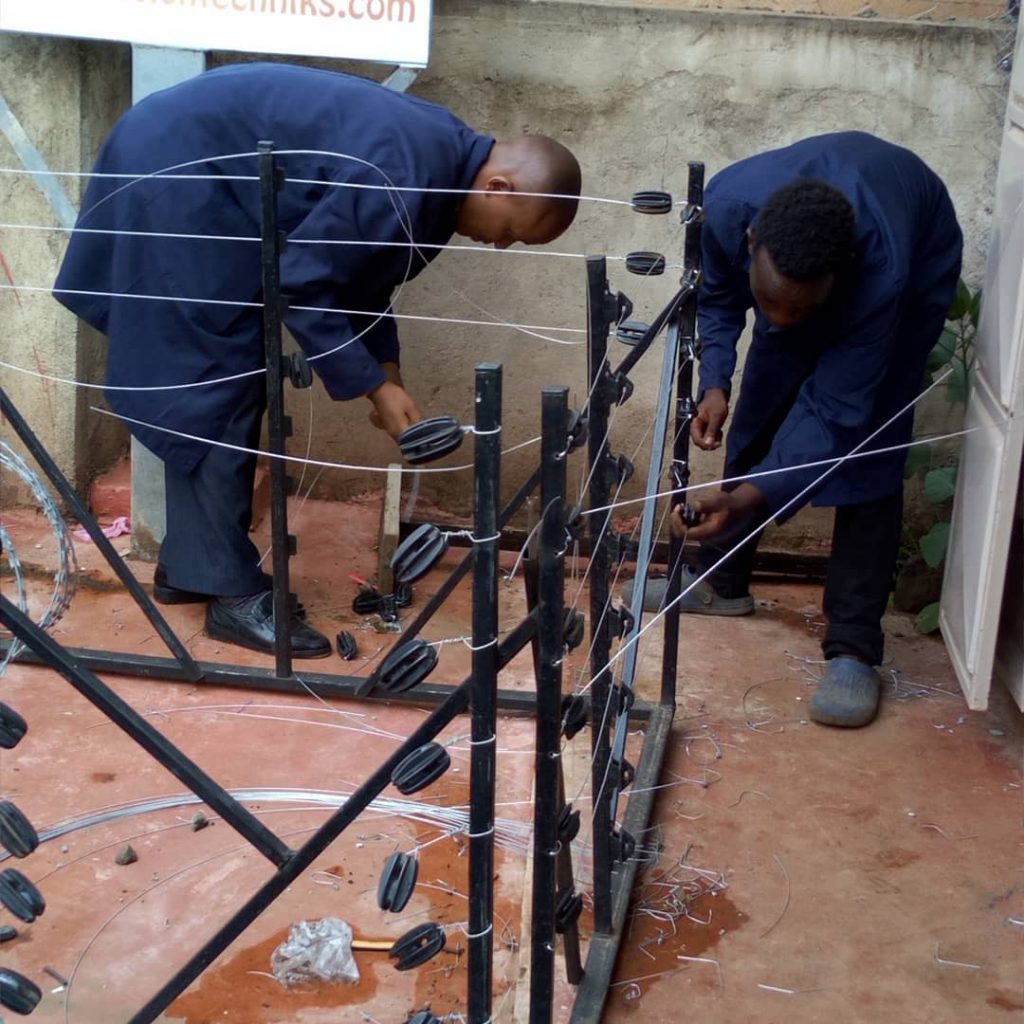LEARN THAT EXTRA SKILL. USE IT!!
Skills that sell . Results that are dependent on your effort.

- This event has passed.
Electric Fence Construction & Installation Skills Training -GEN Z @KES 8K!!-
July 9 @ 09:00 - July 12 @ 16:30 EAT
KES8,000Skills on how to install such a perimeter security enhancement are offered at our institute to give young persons an expanded skill base which can earn them more when called upon to carry out suchlike jobs.
|
REQUIREMENTS TO JOIN OUR SECURITY INSTALLATION COURSES AS A TRAINEE: 1. You don’t need any specific qualifications to start as a trainee, although employers may expect you to have KCSE (A-D-), or similar qualifications, in English, Math, and at least one
2. Full Fee payment
|
Introduction
Living in a region where insecurity is a challenge, most residential and commercial property owners find it indispensable to have electric fences installed on their perimeter walls
There are a few obvious advantages to electric fencing as a security barrier on your perimeter walls, as it acts as:
- A physical barrier,
- A psychological barrier, and
- An early warning system.
The visual appearance thereof will be a definite deterrent to a potential intruder as it will cause a delay to enter your property and also when they want to exit again.
Skills on how to install such a perimeter security enhancement are offered at our institute to give young persons an expanded skill base which can earn them more when called upon to carry out suchlike jobs.
Who is this course intended for?
- Anyone Interested in becoming an Electric Fence Dealer
- Installers and Technicians
- Project Managers
- Security Managers
- Building Contractors
- Engineers and Consultants
- Sales Staff of electronic security equipment

A trainee learning how to install E-Fence on a model Fence at our workshop
Compulsory class day 1:
Topics covered will be;
- Electric fencing components;
- Basic electronic and electrical theory;
- Basic electronic and electrical components and equipment;
- Basic electronic and electrical theory as applied to electric fencing;
- Installation configuration, quotation, work plans, and administration;
- Completing the Electric Fencing System Certificate of Compliance.
Compulsory class days 2& 3:
Training will consist of extra topics not required for examination purposes, covering aspects of;
- Earthing systems;
- Over-voltage, electromagnetic interference, and ground potential;
- Metallurgy ;
- Communication systems;
- Electric fence circuits, monitoring systems, and electrical systems;
- Review of assignments.
Examination and assessment day 2:
-
Written multiple choice question paper, covering;
- Electric fencing components;
- electronic and electrical theory;
- electronic and electrical components and equipment;
- Basic electronic and electrical theory as applied to electric fencing;
- Installation configuration, quotation, work plans, and administration.
- Practical exam 1 – covering aspects of finding faults on an electric fence.
Examination and assessment day 3:
A practical exam during which the learner has to erect a fully functional replica of an electric fence.
Should the learner be found to be competent, in; the two written exams; the two practical exams; and structured questions, the candidate will be declared competent as an ‘Electric Fence System Installer’.
Tools required for compulsory classes, practical projects, examinations, and assessments:–
A learner shall be responsible for supplying his or her hand tools and instruments for this purpose. A short list of which is as follows:-
- Side cutters and pliers – to be used on electric fencing wire.
- Small flat screwdriver – to be used for tightening wires into connectors.
- Large flat screwdriver – to be used for tightening self-tapping screws.
- Hack saw – for the cutting conduit.

- Spring – for bending 20mm conduit.
- Hand-held multimeter – capable of measuring resistance, voltage, and current, with both DC and AC settings.
- Hand-held volt meter – measuring electric fence high voltage.
- Hand-held soldering iron, with solder.
- Safety boots and overalls.
This training will lift you from zero skills to a skilled and ready installer for all types of electric fences.
It will take you through the fence design, material selection, costing, implementation, commissioning, and maintenance.
Course to cover the following types of fences:
-
Free Standing Electric Fence
-
Top Wall Electric Fences
-
Custom Installed Electric Fences
Also to be covered would be
-
Electric Fences Energizer types
-
Types of Electric Fences wires
-
Electric Fences poles and their preparation

Details
- Start:
- July 9 @ 09:00 EAT
- End:
- July 12 @ 16:30 EAT
- Cost:
- KES8,000
- Event Categories:
- Access Control, PERIMETER PROTECTION, SURVEILLANCE
- Event Tags:
- barrier, components, electric, electric fence, energizer, fencing, perimeter, poles, safety, Security, voltage, warning, wires
Organiser
- Kenvision Trainers, Kahawa Sukari, Nairobi
- Phone
- +254 725579251
- ken_trainers@kenvisiontechniks.com
- View Organiser Website
Venue
- Kenvision Techniks Talent Centre
-
Q7-Q9 FELIZ BUILDING- KAHAWA SUKARI
NAIROBI, NAIROBI 00200 Kenya + Google Map - Phone
- +254725579251
- View Venue Website


